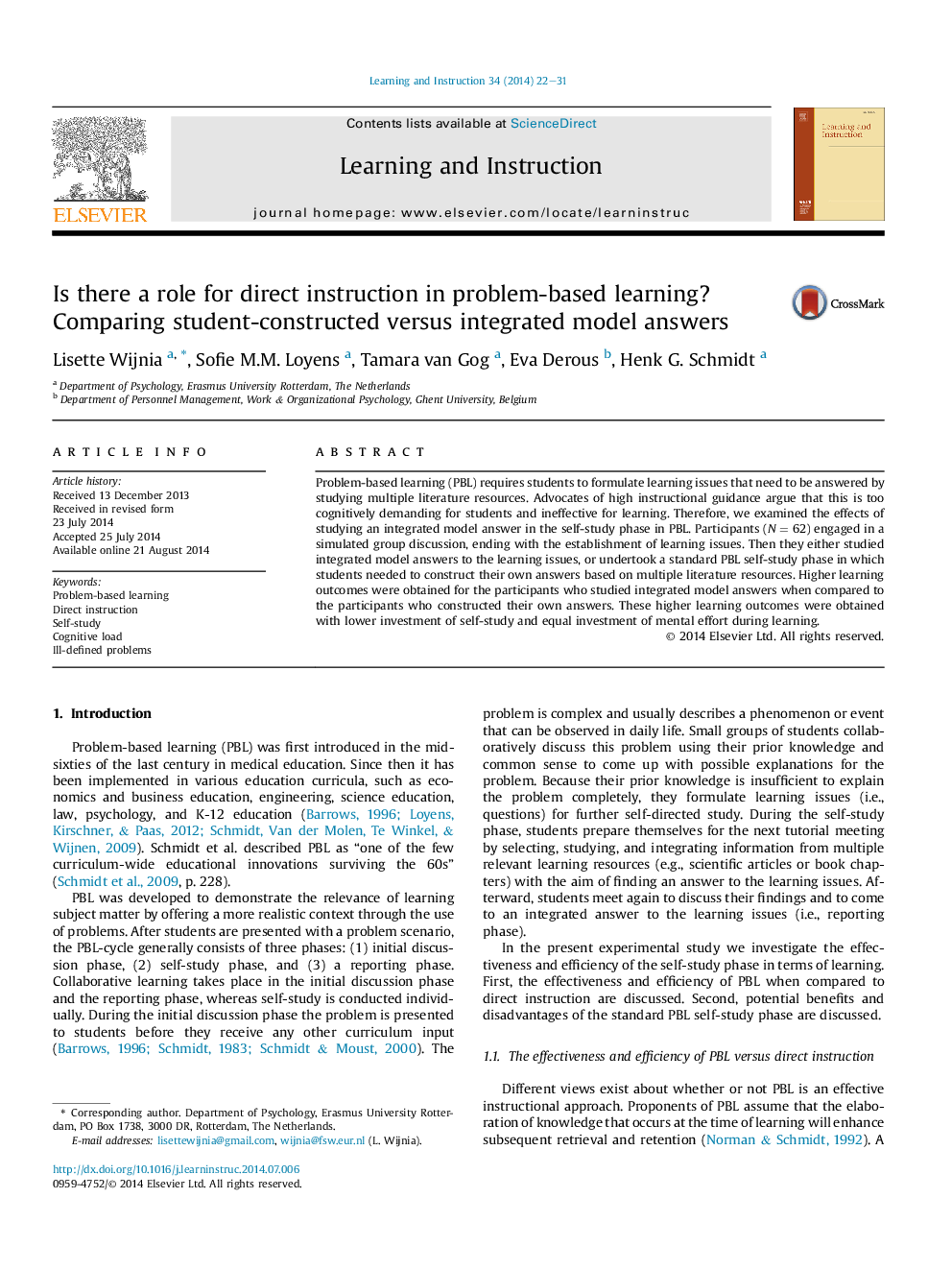| Article ID | Journal | Published Year | Pages | File Type |
|---|---|---|---|---|
| 365520 | Learning and Instruction | 2014 | 10 Pages |
•Integrated model answers in problem-based learning were effective and efficient.•Studying integrated model answers resulted in higher learning outcomes.•Higher learning outcomes were obtained with less investment of self-study.•Learning outcomes declined after 1 week for participants who studied model answers.•There were no differences between conditions in motivation.
Problem-based learning (PBL) requires students to formulate learning issues that need to be answered by studying multiple literature resources. Advocates of high instructional guidance argue that this is too cognitively demanding for students and ineffective for learning. Therefore, we examined the effects of studying an integrated model answer in the self-study phase in PBL. Participants (N = 62) engaged in a simulated group discussion, ending with the establishment of learning issues. Then they either studied integrated model answers to the learning issues, or undertook a standard PBL self-study phase in which students needed to construct their own answers based on multiple literature resources. Higher learning outcomes were obtained for the participants who studied integrated model answers when compared to the participants who constructed their own answers. These higher learning outcomes were obtained with lower investment of self-study and equal investment of mental effort during learning.
